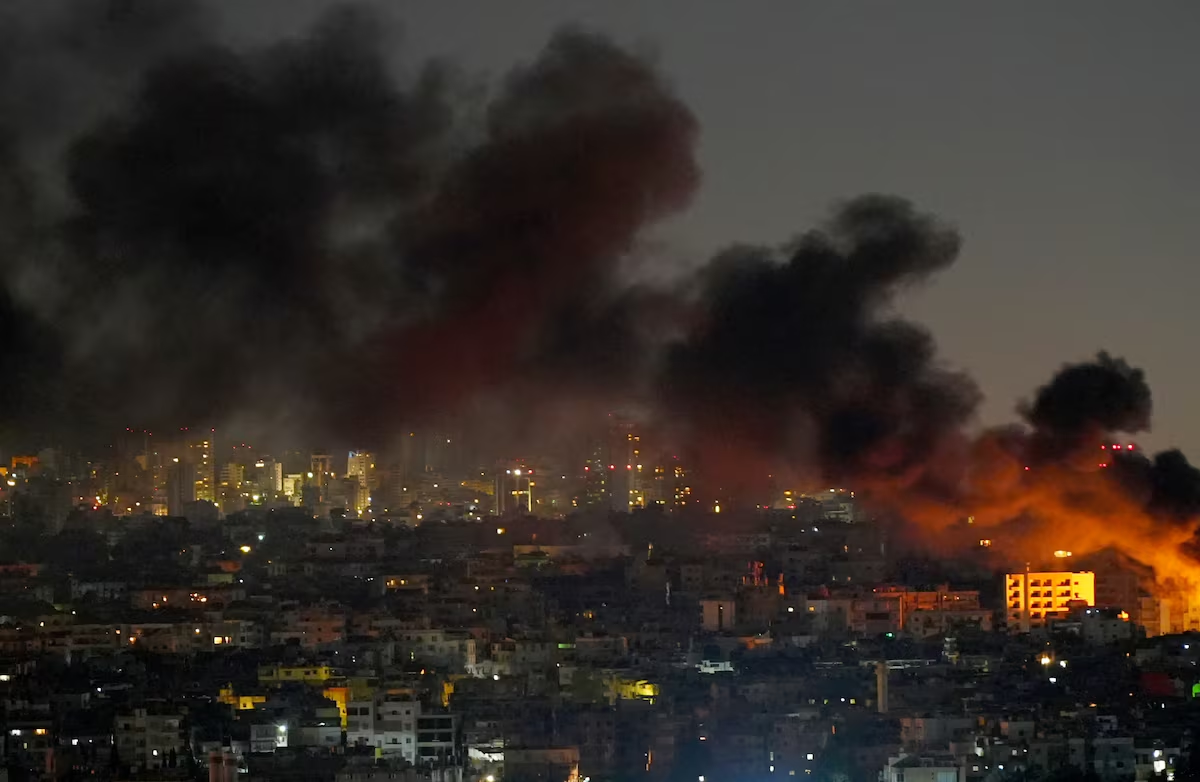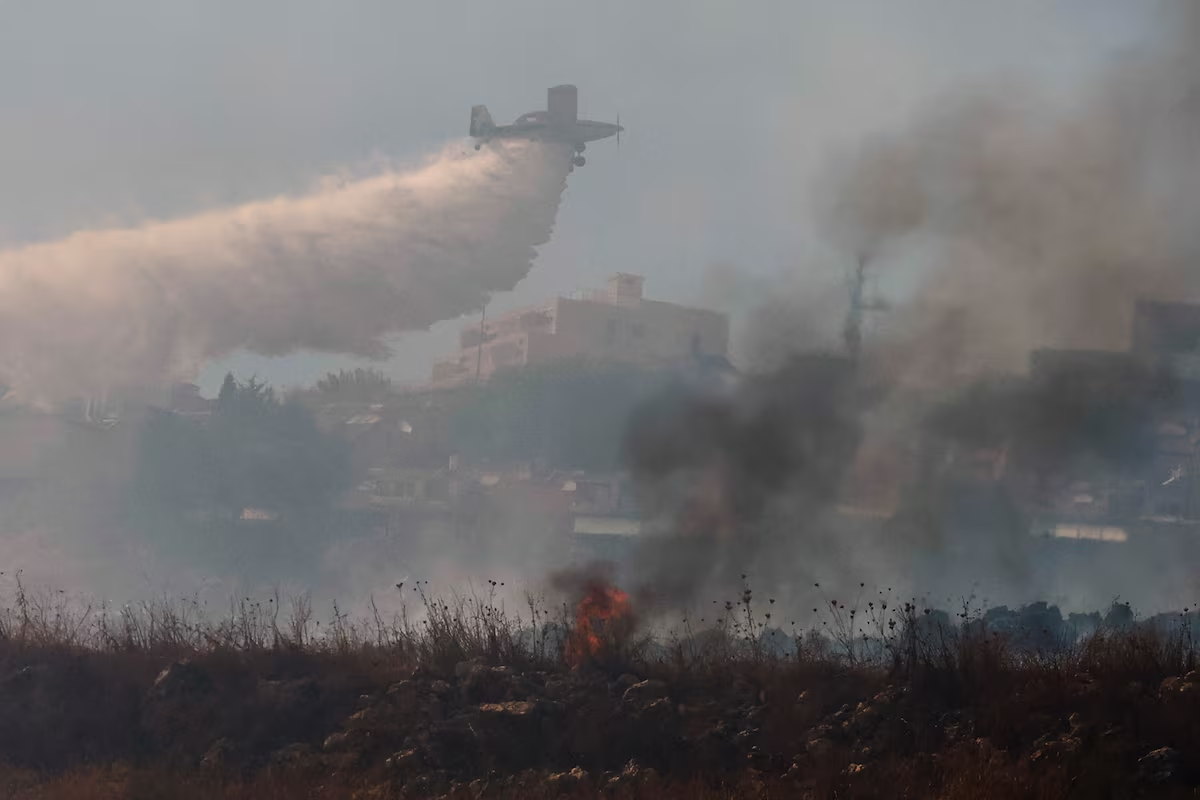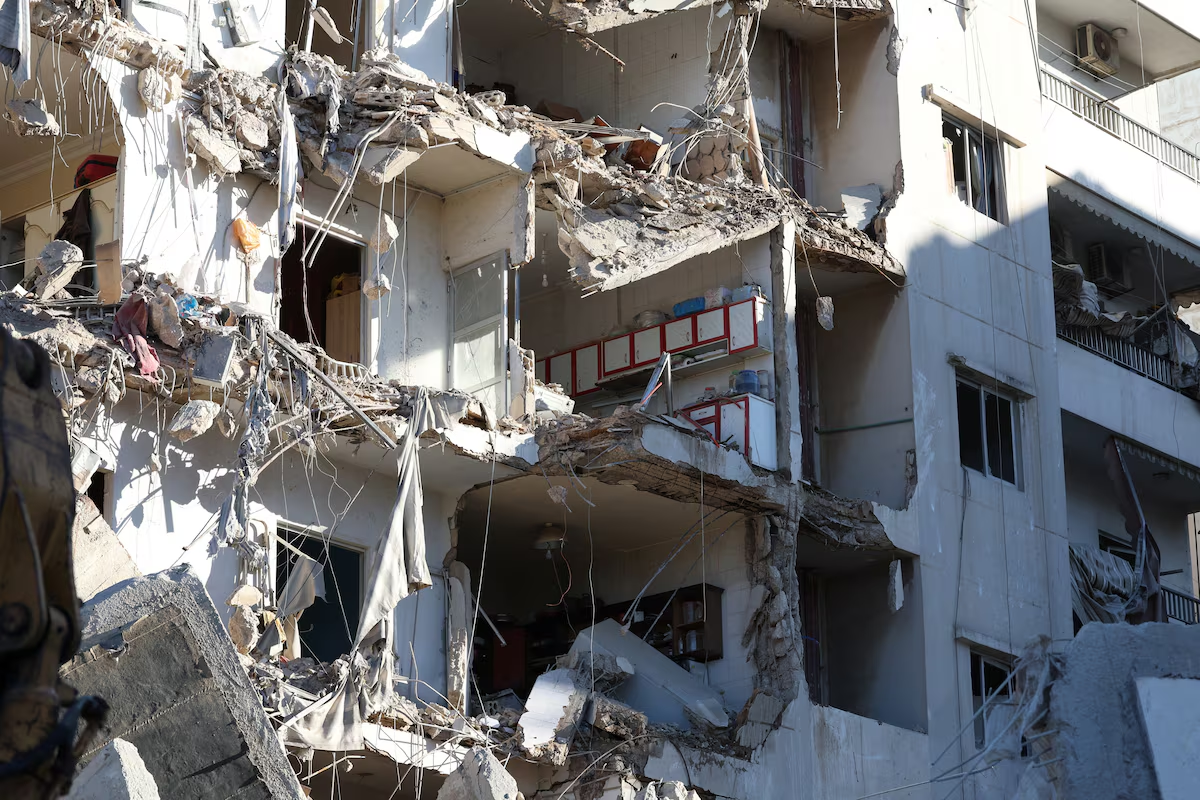U.S. envoy Amos Hochstein will meet with Lebanese officials in Beirut on Monday to discuss conditions for a potential ceasefire between Israel and Iran-backed Hezbollah, two sources told Reuters. This meeting comes as Israel intensifies its military campaign, expanding airstrikes on Hezbollah assets overnight. Hochstein is expected to advocate for calm after more than a year of conflict, during which Israel has targeted leaders of both Hezbollah in Lebanon and Hamas in Gaza. Despite rising casualties, the U.S. remains firmly committed to supporting Israel. U.S. Defense Secretary Lloyd Austin, during a visit to Kyiv, confirmed that the advanced anti-missile system, Terminal High Altitude Area Defense (THAAD), has been deployed in Israel, though he did not specify whether it is operational yet.

In its latest wave of strikes, Israel targeted Hezbollah-affiliated locations in Beirut, southern Lebanon, and the Bekaa Valley. These strikes, which Israel claims hit Hezbollah’s financial operations, forced hundreds of families to flee, though no casualties were reported. Axios reported on Sunday that Israel has presented the U.S. with a set of conditions for ending the war, including demands that its forces be allowed to actively prevent Hezbollah from rearming and that its air force retain freedom of operation in Lebanese airspace. However, a U.S. official suggested that these conditions are unlikely to be accepted by Lebanon or the international community.
Hochstein’s meetings in Lebanon are set to include talks with caretaker Prime Minister Najib Mikati and parliamentary speaker Nabih Berri. Over the weekend, Berri stated that this visit represents the “last chance before the U.S. elections” to reach a truce, but he also rejected any amendments to U.N. Resolution 1701, which brought an end to the 2006 conflict between Hezbollah and Israel.
The current cross-border fighting between Israel and Hezbollah erupted a year ago when Hezbollah launched rockets in support of Hamas, following the latter’s attacks on Israel from Gaza. In early October, Israel began a ground assault in Lebanon to stabilize the border and protect its northern communities from Hezbollah’s rocket attacks. This campaign has also seen the assassination of senior Hezbollah figures, including its veteran leader Hassan Nasrallah, who was killed in an Israeli airstrike in Beirut.

The U.S. and other regional powers have spent the last year trying to broker a ceasefire in Gaza, but these efforts have been unsuccessful. Many Lebanese officials and diplomats remain skeptical about the chances of reaching a truce in Lebanon, given the complexity of the conflict.
In Beirut, residents woke up to black smoke rising from the southern suburbs after a night of at least 10 blasts. Israeli airstrikes targeted the Chiyah neighborhood, reducing a building there to rubble. Witnesses reported that most residents had fled ahead of the strikes, which helped avoid casualties. Israel’s military confirmed the attacks on Hezbollah’s financial arm, the Al-Qard Al-Hassan Association, urging civilians to avoid its branches across Lebanon. Al-Qard Al-Hassan, which the U.S. has accused of financing Hezbollah, has branches in heavily populated areas of Beirut and its suburbs.
A senior Israeli intelligence official defended the strikes, stating that they aimed to cripple Hezbollah’s economic operations both during the conflict and in its aftermath, limiting its ability to rearm and rebuild.

The ongoing military campaigns in Gaza and Lebanon come just days after the assassination of Hamas leader Yahya Sinwar, which had briefly raised hopes of ceasefire talks. However, with U.S. elections looming, regional officials and diplomats believe Israel is seeking to secure its borders through military action and prevent its adversaries from regrouping.
Amid the broader regional conflict, Israel is also preparing to retaliate for an Iranian missile strike earlier this month. Washington, however, has urged Israel to refrain from targeting Iranian energy facilities or nuclear sites.
The conflict began after Hamas-led militants attacked Israel on October 7 last year, killing 1,200 people and taking 250 hostages, according to Israeli figures. In response, Israel’s military operations in Gaza have resulted in over 42,500 Palestinian deaths, displaced most of the 2.3 million people living in Gaza, and devastated much of the territory, according to Palestinian officials.
In Lebanon, more than 2,400 people have been killed and over 1.2 million displaced over the past year, according to Lebanese officials. Israel has reported the deaths of 59 people in northern Israel and the occupied Golan Heights during the same period.





